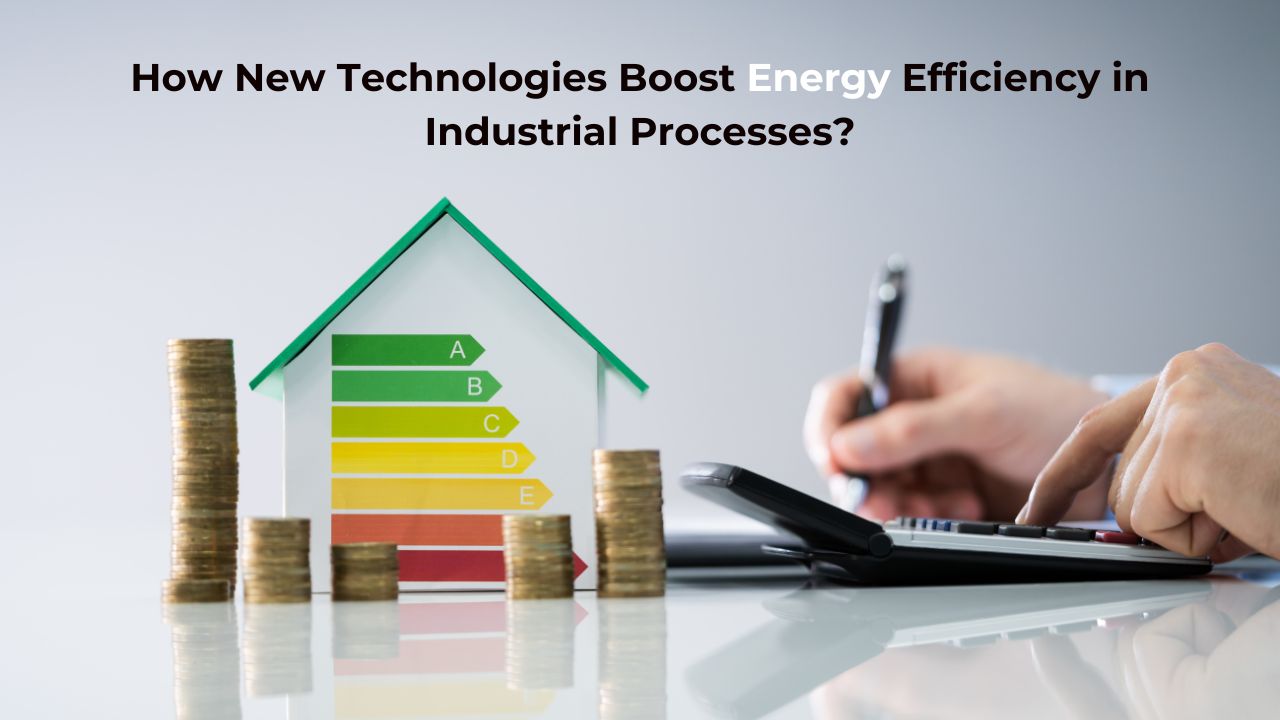
Introduction
In today’s world, industries are under increasing pressure to enhance their energy efficiency while managing waste effectively. New technologies are playing a pivotal role in meeting these challenges, offering innovative solutions that streamline operations and reduce environmental impact. This blog explores how advanced technologies are transforming energy efficiency in industrial processes, with a focus on waste management and related authorizations.
Advancements in Waste Management Technologies
Waste management has always been a critical aspect of industrial operations, but recent technological advancements have significantly improved the efficiency of these processes. Modern waste management solutions are designed to handle various types of waste, including plastic and solid waste, more effectively. Technologies such as automated sorting systems and advanced recycling methods are enhancing the management of industrial waste.
Automated sorting systems use sensors and artificial intelligence to sort waste materials with high precision. These systems can differentiate between different types of plastics, metals, and other materials, ensuring that each type is processed according to its specific requirements. This increased accuracy not only improves recycling rates but also reduces the amount of waste sent to landfills, contributing to better waste management.
Plastic Waste Authorization and Certification
With the growing concern over plastic pollution, industries are increasingly focusing on plastic waste management. Plastic waste authorization and certification are critical components in ensuring that businesses comply with environmental regulations. New technologies are facilitating the certification process by automating and streamlining documentation and compliance checks.
Plastic waste certification programs are designed to ensure that companies meet specific environmental standards when handling plastic waste. Technologies such as blockchain and digital documentation are being used to track and verify compliance with these standards. This not only simplifies the certification process but also enhances transparency and accountability in waste management practices.
Solid Waste Management Authorization
Solid waste management is another area where technology is making a significant impact. Solid waste management authorization involves obtaining the necessary permits and approvals to handle, process, and dispose of solid waste. Advanced technologies are helping industries navigate the complexities of this process more efficiently.
One of the key technologies in this area is Geographic Information Systems (GIS). GIS technology allows for better planning and management of waste collection routes, reducing fuel consumption and emissions associated with waste transport. Additionally, real-time data collection and analysis enable more accurate monitoring of waste management operations, leading to improved compliance with solid waste management registration and regulations.
Energy-Efficient Technologies in Waste Management
Energy efficiency is a major focus in modern waste management technologies. Innovations such as waste-to-energy systems are gaining traction, offering a sustainable solution for managing waste while generating energy. These systems convert waste materials into usable energy, such as electricity or heat, reducing the reliance on fossil fuels and lowering overall energy consumption.
Another significant advancement is the development of energy-efficient waste treatment facilities. These facilities use cutting-edge technologies to optimize energy use during the waste treatment process. For example, high-efficiency incinerators and gasification systems are designed to minimize energy consumption and maximize energy recovery from waste materials.
Integration of Waste Management Technologies with Industrial Processes
The integration of waste management technologies with industrial processes is essential for achieving overall energy efficiency. Many industries are adopting integrated waste management systems that combine waste collection, sorting, treatment, and disposal into a single cohesive process. This integration not only streamlines operations but also reduces energy consumption by minimizing the need for multiple waste-handling stages.
Smart sensors and data analytics play a crucial role in this integration. By providing real-time information on waste generation and processing, these technologies enable industries to make informed decisions about waste management. This data-driven approach helps in optimizing resource allocation and identifying opportunities for energy savings.
Waste Management Licence Requirements
To implement these advanced technologies, industries must comply with various waste management licence requirements. These requirements ensure that companies adhere to environmental regulations and standards while managing waste. New technologies are making it easier for businesses to meet these requirements by providing automated tools for documentation, reporting, and compliance tracking.
For instance, digital platforms are now available to help businesses navigate the complexities of waste management licensing. These platforms offer resources and guidance on obtaining and maintaining the necessary licences, making the process more transparent and accessible. Additionally, technologies such as electronic waste tracking systems are improving the efficiency of compliance monitoring and reporting.
The Role of Energy Efficiency in Reducing Environmental Impact
Energy efficiency is closely linked to waste management and overall environmental impact. By adopting energy-efficient technologies and practices, industries can significantly reduce their carbon footprint and environmental footprint. Efficient waste management practices contribute to this goal by minimizing waste generation, optimizing resource use, and reducing emissions.
For example, energy-efficient waste-to-energy systems not only help in managing waste but also provide a renewable source of energy. This reduces the need for conventional energy sources and lowers greenhouse gas emissions. Similarly, advancements in waste treatment technologies help in reducing the environmental impact of waste disposal by improving the efficiency of the treatment process.
Conclusion
New technologies are revolutionizing energy efficiency in industrial processes, particularly in the realm of waste management. From automated sorting systems and plastic waste certification to energy-efficient waste treatment facilities and integrated waste management solutions, these advancements are helping industries achieve better environmental performance and operational efficiency.
By embracing these technologies and adhering to waste management registration requirements, businesses can contribute to a more sustainable future while enhancing their energy efficiency. The ongoing development and implementation of innovative solutions will continue to drive progress in this critical area, paving the way for a greener and more efficient industrial sector.




